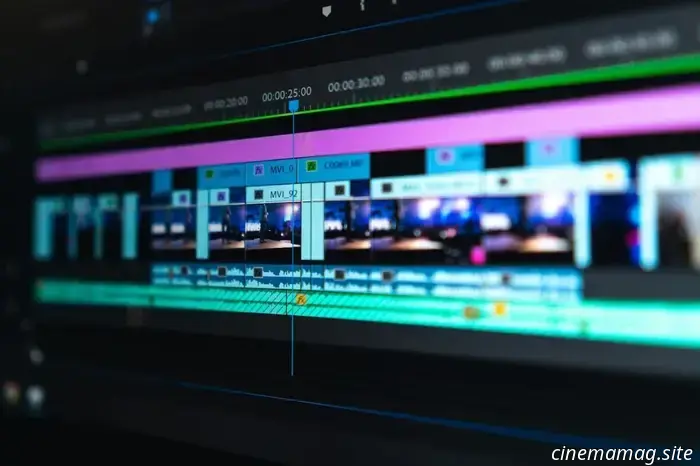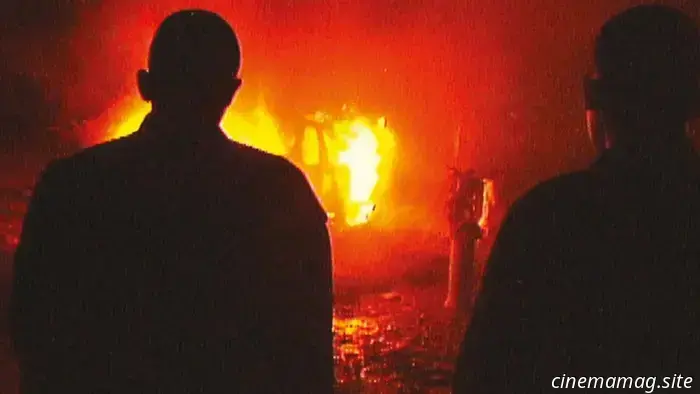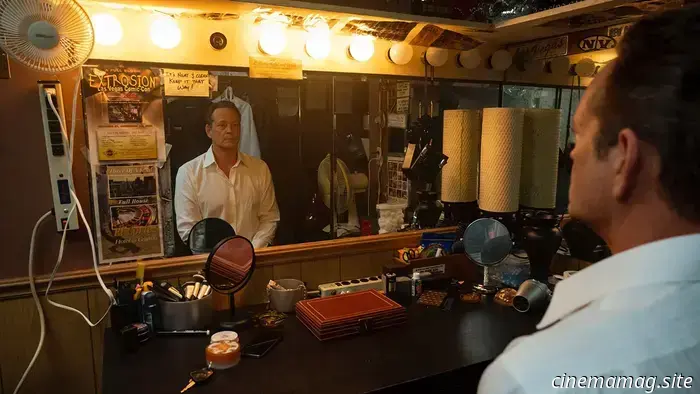
AI in Filmmaking: How New Technologies Are Transforming Cinema
Artificial intelligence is changing the landscape of storytelling. It is now a contemporary reality, influencing how films are written, produced, and marketed. With the help of automated editing tools and predictive analytics, AI is becoming an essential partner in all phases of filmmaking. Instead of replacing directors or screenwriters, these technologies introduce new opportunities to enhance creativity and simplify intricate processes.
From Script to Screen: The Role of AI in Filmmaking
AI tools are making an impact at every step of the filmmaking journey. AI movie script generators speed up pre-production, while production stages benefit from automated adjustments in lighting and camera work. In post-production, AI streamlines editing and special effects, allowing artists to concentrate on the narrative. Even the marketing aspect has transformed with AI-powered movie trailer generators and predictive algorithms assisting studios in developing campaigns that engage audiences effectively.
AI-Enhanced Scriptwriting and Storyboarding
Writers have always been intrigued by technology's influence on storytelling, and today’s AI-driven platforms make that relationship tangible. Tools such as AI movie script generators aid creators in brainstorming ideas, refining dialogue, and analyzing audience responses ahead of filming. Rather than replacing human writers, these tools serve as brainstorming partners, enabling filmmakers to explore various scene iterations.
Storyboarding has also evolved. AI visualization tools can convert basic sketches into nearly photorealistic previews, saving time and providing directors with a clearer vision for their scenes. Even independent creators can now utilize tools that were once limited to high-budget studios. The reach of AI creativity extends beyond writing platforms like EssayWriter, as AI writers illustrate how writing aids can inspire narratives across different media.
Casting, Scheduling, and Budget Management
Every film project involves a complex network of logistics, and AI is assisting filmmakers in managing these tasks. Casting platforms now leverage machine learning to assess actor compatibility based on attributes like voice, appearance, and audience preferences. Production scheduling software can foresee potential delays and automatically modify shooting timetables, helping teams manage resources effectively.
AI-driven analytics also lend a hand in budgeting. Studios can forecast box office potential or streaming engagement accurately, enabling producers to make informed investment decisions. These advancements are not just applicable to blockbuster films; they can significantly benefit smaller productions operating on limited budgets.
Advanced Filming Technology
AI-enhanced cameras are transforming how directors capture scenes. With features like automatic focus adjustments and real-time lighting assessments, these cameras assist cinematographers in achieving ideal shots more rapidly. Drone filmmaking has progressed as well, enabling drones to track subjects effortlessly and navigate difficult settings, thus making aerial cinematography more accessible.
Techniques like virtual production, utilizing LED screens powered by Unreal Engine, heavily rely on AI for scene rendering and set design. This technology, popularized by productions like The Mandalorian, allows filming in spectacular settings without ever leaving the studio.
Post-Production Innovation
Editing has long been one of the most labor-intensive aspects of filmmaking, but AI is significantly enhancing workflow speed. Tools can now automatically cut scenes, adjust color balances, and even identify continuity errors. Visual effects (VFX) have also benefited from AI tools that simplify processes like rotoscoping and CGI design.
AI excels in audio editing as well. From sound mixing to voice cloning, creators gain unprecedented control over their soundtracks. Some tools even permit filmmakers to re-record dialogue without requiring actors to return to the studio, although ethical considerations must be taken into account.
AI in Marketing: Posters, Trailers, and Audience Data
Marketing is just as crucial as the filmmaking process, and AI has transformed this arena. Studios are now using AI movie trailer generators to craft promotional videos targeted at specific demographics, thereby saving time and enhancing engagement. AI platforms can analyze audience data to identify which scenes in a trailer resonate most, assisting campaigns in going viral.
The creation of posters has also progressed. An AI movie poster generator enables designers to test several visual concepts in a matter of minutes. The emergence of AI-generated movie posters allows indie filmmakers to visually compete with larger studios, providing professional-quality results on smaller budgets.
AI also aids in predicting audience reactions, offering marketers important insights prior to a film's launch. Such tools were crucial during the promotional phase of the first AI-generated movie, demonstrating how deeply artificial intelligence can affect cinema marketing.
Challenges and Ethical Considerations
While AI contributes efficiency and creativity, it also introduces ethical dilemmas. Concerns persist about whether AI-generated content undermines original artistry or if deepfake technology could be misused to replicate actors without their consent. The issue of copyright ownership also arises: who retains the rights to a script or visual created by AI?
The anxiety surrounding the potential replacement of creative professions is palpable, yet current trends indicate that AI is more effective as a supporting tool rather than a substitute. Filmmaking is an inherently human endeavor, reliant on emotional depth and cultural insights that AI cannot replicate.
The Future of AI and Human Creativity
Rather than concluding the era of traditional filmmaking, AI marks a new beginning in cinematic storytelling. Technologies that once seemed far-off now empower
Other articles
 Teaser for the action thriller The Shepherd Code: Road Back
Before its UK theatrical debut this Friday, M and M Film Productions has released a trailer for the action crime thriller The Shepherd Code: Road Back. Directed by Alan Delabie and Michael Morris, the film features Don “The Dragon” Wilson (Batman Forever), Michael McKell (Allied), Mark Strange (Kung Fu Games), and Shaina West (Killers […]
Teaser for the action thriller The Shepherd Code: Road Back
Before its UK theatrical debut this Friday, M and M Film Productions has released a trailer for the action crime thriller The Shepherd Code: Road Back. Directed by Alan Delabie and Michael Morris, the film features Don “The Dragon” Wilson (Batman Forever), Michael McKell (Allied), Mark Strange (Kung Fu Games), and Shaina West (Killers […]
 TIFF Review: Barrio Triste is Among the Year's Most Impressive Debuts
At just two years old, Harmony Korine’s "post-cinema" company EDGLRD is already expanding its reach. Following his direction of AGGRO DR1FT and Baby Invasion, Korine is stepping into a producer role for Barrio Triste, the first feature film by Colombian-American artist Stillz. This collaboration is well-suited, considering Stillz’s experience as a music video director for artists such as Bad.
TIFF Review: Barrio Triste is Among the Year's Most Impressive Debuts
At just two years old, Harmony Korine’s "post-cinema" company EDGLRD is already expanding its reach. Following his direction of AGGRO DR1FT and Baby Invasion, Korine is stepping into a producer role for Barrio Triste, the first feature film by Colombian-American artist Stillz. This collaboration is well-suited, considering Stillz’s experience as a music video director for artists such as Bad.
-Movie-Review.jpg) Hamnet (2025) - Film Review
Hamnet, 2025. Directed by Chloé Zhao. Featuring Jessie Buckley, Paul Mescal, Emily Watson, and Joe Alwyn. SYNOPSIS: A tale of love and grief that served as the inspiration for Shakespeare's enduring work, Hamlet. Chloé Zhao's adaptation of Maggie O’Farrell’s 2020 novel Hamnet comes with impressive credentials: a renowned source material, the support of Steven Spielberg, and […]
Hamnet (2025) - Film Review
Hamnet, 2025. Directed by Chloé Zhao. Featuring Jessie Buckley, Paul Mescal, Emily Watson, and Joe Alwyn. SYNOPSIS: A tale of love and grief that served as the inspiration for Shakespeare's enduring work, Hamlet. Chloé Zhao's adaptation of Maggie O’Farrell’s 2020 novel Hamnet comes with impressive credentials: a renowned source material, the support of Steven Spielberg, and […]
-Movie-Review.jpg) The Summer Book (2025) - Film Review
The Summer Book, 2025. Directed by Charlie McDowell. Featuring Glenn Close, Anders Danielsen Lie, Ingvar E. Sigurðsson, Pekka Strang, Sophia Heikkilä, Emily Matthews, and Theo Zilliacus. SYNOPSIS: Chronicles the uplifting story of a young girl and her grandmother who spend a summer on a tiny, uninhabited island in the Gulf of Finland. Relocating to a Finnish [...]
The Summer Book (2025) - Film Review
The Summer Book, 2025. Directed by Charlie McDowell. Featuring Glenn Close, Anders Danielsen Lie, Ingvar E. Sigurðsson, Pekka Strang, Sophia Heikkilä, Emily Matthews, and Theo Zilliacus. SYNOPSIS: Chronicles the uplifting story of a young girl and her grandmother who spend a summer on a tiny, uninhabited island in the Gulf of Finland. Relocating to a Finnish [...]
 TIFF Review: Easy's Waltz Presents Nic Pizzolatto with a Strange, Awkward New Hollywood Imitation
My friend Nick Newman, who serves as the Film Stage Managing Editor, often uses the phrase “counterfeit money” to refer to certain films. Whether it’s The Batman or any of Ben Affleck’s works, this term effectively captures several titles that pretend to be genuine adult filmmaking while sidestepping the stylistic flair or ethical dilemmas that characterize true artistry.
TIFF Review: Easy's Waltz Presents Nic Pizzolatto with a Strange, Awkward New Hollywood Imitation
My friend Nick Newman, who serves as the Film Stage Managing Editor, often uses the phrase “counterfeit money” to refer to certain films. Whether it’s The Batman or any of Ben Affleck’s works, this term effectively captures several titles that pretend to be genuine adult filmmaking while sidestepping the stylistic flair or ethical dilemmas that characterize true artistry.
AI in Filmmaking: How New Technologies Are Transforming Cinema
Investigate the ways in which AI is revolutionizing filmmaking, including the creation of AI-generated movie posters and trailers, as well as advanced editing tools. Discover how AI enhances the creative process for filmmakers while preserving their unique vision.
